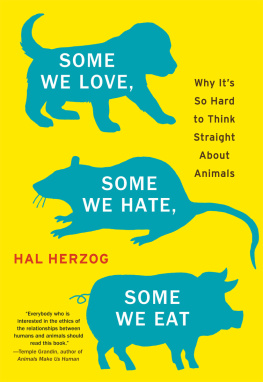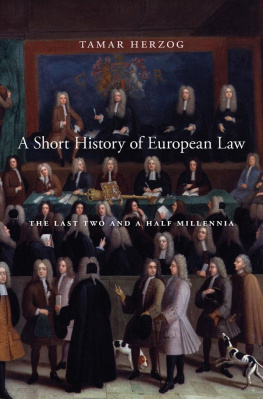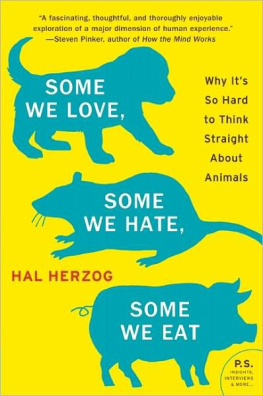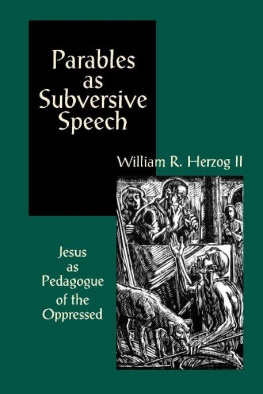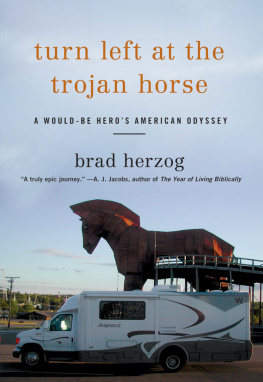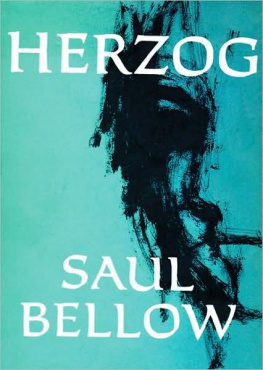Hal Herzog - Some We Love, Some We Hate, Some We Eat
Here you can read online Hal Herzog - Some We Love, Some We Hate, Some We Eat full text of the book (entire story) in english for free. Download pdf and epub, get meaning, cover and reviews about this ebook. genre: Art / Prose. Description of the work, (preface) as well as reviews are available. Best literature library LitArk.com created for fans of good reading and offers a wide selection of genres:
Romance novel
Science fiction
Adventure
Detective
Science
History
Home and family
Prose
Art
Politics
Computer
Non-fiction
Religion
Business
Children
Humor
Choose a favorite category and find really read worthwhile books. Enjoy immersion in the world of imagination, feel the emotions of the characters or learn something new for yourself, make an fascinating discovery.
- Book:Some We Love, Some We Hate, Some We Eat
- Author:
- Genre:
- Rating:4 / 5
- Favourites:Add to favourites
- Your mark:
- 80
- 1
- 2
- 3
- 4
- 5
Some We Love, Some We Hate, Some We Eat: summary, description and annotation
We offer to read an annotation, description, summary or preface (depends on what the author of the book "Some We Love, Some We Hate, Some We Eat" wrote himself). If you haven't found the necessary information about the book — write in the comments, we will try to find it.
Some We Love, Some We Hate, Some We Eat — read online for free the complete book (whole text) full work
Below is the text of the book, divided by pages. System saving the place of the last page read, allows you to conveniently read the book "Some We Love, Some We Hate, Some We Eat" online for free, without having to search again every time where you left off. Put a bookmark, and you can go to the page where you finished reading at any time.
Font size:
Interval:
Bookmark:
To Adam, Betsy, Katie, and most of all, Mary Jean,
to whom I owe everything
Why Is It So Hard to Think Straight About Animals?
I like pondering our relationships with animals because they tell a lot about who we are.
MARC BEKOFF
The way we think about other species often defies logic. Consider Judith Black. When she was twelve, Judith decided that it was wrong to kill animals just because they taste good. But what exactly is an animal? While it is obvious that dogs and cats and cows and pigs are animals, it was equally clear to Judith that fish were not. They just didnt feel like animals to her. So for the next fifteen years, this intuitive biological classification system enabled Judith, who has a PhD in anthropology, to think of herself as a vegetarian, yet still experience the joys of smoked Copper River salmon and lemon-grilled swordfish.
This twisted moral taxonomy worked fine until Judith ran into Joseph Weldon, a graduate student in biology. When they first met, Joseph, himself a meat eater, tried to convince Judith that there is not a shred of moral difference between eating a Cornish hen and a Chilean sea bass. After all, he reasoned, both birds and fish are vertebrates, have brains, and lead social lives. Despite his best efforts, he failed to convince her that from a culinary ethics perspective, a cod is a chicken is a cow.
Fortunately, their disagreement over the moral status of mahi mahi did not prevent them from falling in love. They married, and her new husband kept the fish-versus-fowl discussion going over the dinner table. After three years of philosophical to-and-fro, Judith sighed one evening and gave in: OK, I see your point. Fish are animals.
But now she faced a difficult decision: She could either quit eating fish, or stop thinking of herself as a vegetarian. Something had to give. A week later, friends invited Joseph to a grouse hunt. Though he had no experience with a shotgun, he somehow managed to hit a bird on the fly, and, in grand caveman tradition, showed up at home, dead carcass in hand. Joseph then proceeded to pluck and cook the grouse, which he proudly served to his wife for dinner along with wild rice and a lovely raspberry sauce.
In an instant, fifteen years of moral high ground went down the drain. (I am a sucker for raspberries, Judith told me.) The taste of roasted grouse opened the floodgates and there was no going back. Within a week, she was chowing down on cheeseburgers. Judith had joined the ranks of ex-vegetarians, a club that outnumbers current vegetarians in the United States by a ratio of three to one.
Then there is Jim Thompson, a twenty-five-year-old doctoral student in mathematics who was working on his dissertation when I met him. Before beginning graduate school, Jim had worked in a poultry research laboratory in Lexington, Kentucky, where one of his jobs consisted of dispatching baby chicks at the end of the experiments. For a while, this posed no problem for Jim. However, things changed one day when he was looking for a magazine to read on a plane and his mother handed him a copy of The Animals Agenda , a magazine that advocated animal rights. He never ate meat again.
That was just the start. Over the next couple of months, Jim quit wearing leather shoes, and he pressured his girlfriend to go veg. He even began to question the morality of keeping pets, including his beloved white cockatiel. One afternoon Jim looked at the bird flitting around her cage in his living room, and a little voice in his head whispered, This is wrong. Gently, he carried the bird into his backyard. He said good-bye and released the cockatiel into the gray skies of Raleigh, North Carolina. It was a great feeling, he told me. Amazing! But then he sheepishly added, I knew she wouldnt survive, that she probably starved. I guess I was doing it for myself more than for her.
Our relationships with animals can also be emotionally complicated. Twenty years ago, Carolyn fell head over heels for an 1,100-pound manatee. She had applied for a jobany jobat a small natural history museum in central Florida. The museum had an opening; they were looking for a caregiver for a thirty-year-old sea cow named Snooty. Carolyn had no experience working with marine mammals, but they offered her the position anyway. She did not know that her life was about to change.
On the phylogenetic scale, Snooty falls somewhere between the Creature from the Black Lagoon and Yoda. When Carolyn introduced me to him, Snooty hooked his flippers over the edge of his pool, hoisted his head two feet out of the water, and looked me straight in the eye, checking me out. While his brain was smaller than a softball, he seemed oddly wise. I found the experience unnerving. Not Carolyn. She was in love.
For over two decades, Carolyns life revolved around Snooty. She spent nearly every day with him, even coming around to visit on her days off. Food was a major part of their relationship. Manatees are vegetarians, and Carolyn fed him by hand120 pounds of leafy green vegetables, mostly lettuce, every day.
But life with an aging sea cow has its downside. Snooty adored Carolyn as much as she doted on him. When she and her husband would sneak off for a week or two of vacation, Snooty would get in a funk and quit eating. All too often, Carolyn would get a call saying that Snooty was off his feed again, and she would rush back to gently ply him with a couple of bushels of iceberg lettuce.
At some point, Carolyn gave up going on vacations. Thats when her husband accused her of having her priorities screwed up, of loving a half-ton blob of blubber and muscle more than she loved him.
IS IT WRONG TO FEED KITTENS
TO BOA CONSTRICTORS?
As a research psychologist, I have been studying human-animal relationships for twenty years, and I have found that the quirky thinking when it comes to animals that we see in Judith, Jim, and Carolyn is not the exception but the rule. I began to think seriously about the inconsistencies in our relationships with other species one sunny September morning when I got a phone call from my friend Sandy. At the time, I was an animal behaviorist and Sandy was an animal rights activist who taught at my university.
Hal, I heard that you were picking up kittens from the Jackson County animal shelter and feeding them to a snake. Is it true?
I was completely taken aback.
Arrgh . What are you talking about? We do have a pet snake, but he is just a baby. He could not possibly swallow a kitten. And I like cats. Even if he were bigger, I would NEVER let him eat a cat.
Sandy apologized profusely. She said she figured the charge was not true, but that she just had to check. I told her I understood, but would appreciate it if she would assure her animal protection pals that I was not dipping into our communitys reservoir of unwanted cats to feed my sons snake.
But then I started thinking about the moral implications of keeping a predator for a pet. We had acquired the baby boa by accident. I had spent the summer as a visiting scientist at the University of Tennessee, studying the development of defensive behaviors in reptiles. I was in the lab testing animals one day when the phone rang. It was a stressed-out man who had awakened to find that during the night, his seven-foot red-tail boa constrictor had given birth to forty-two wriggling newborns. He and his wife were understandably shaken; the new mom had never shown any amorous interest in the male with whom she had shared a cage in the couples living room for the previous eight years.
The man had heard that I was a snake behaviorist and was looking for tips on how to keep the new babies healthy and where he could find good homes for them. I recommended that he contact a reptile expert I knew at the universitys veterinary college for information on raising baby snakes, and agreed to adopt one of the babies myself. That evening, my eleven-year-old son, Adam, and I drove to the couples house, where they gave him the pick of a very large litter. Adam selected the cutest one and named him Sam.
Font size:
Interval:
Bookmark:
Similar books «Some We Love, Some We Hate, Some We Eat»
Look at similar books to Some We Love, Some We Hate, Some We Eat. We have selected literature similar in name and meaning in the hope of providing readers with more options to find new, interesting, not yet read works.
Discussion, reviews of the book Some We Love, Some We Hate, Some We Eat and just readers' own opinions. Leave your comments, write what you think about the work, its meaning or the main characters. Specify what exactly you liked and what you didn't like, and why you think so.

